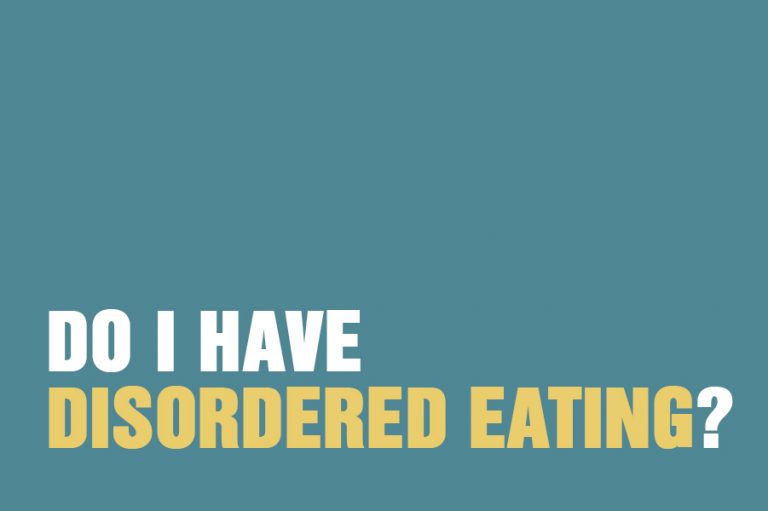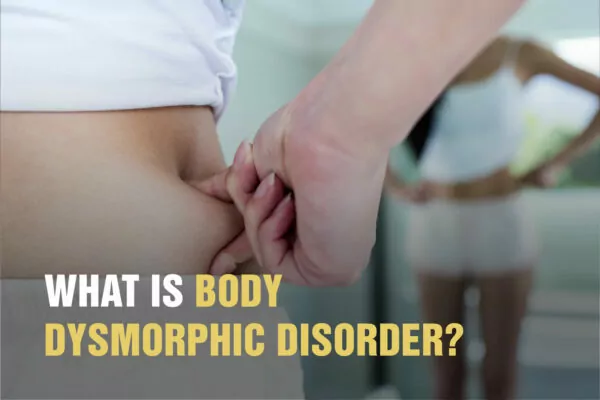What is a high-functioning Eating Disorder?
Disordered eating is an eating disorder that is not diagnosed, doesn’t stop the individual from holding down a job, possibly having children, and carrying out their usual daily tasks. We can also call it ‘disordered eating’ rather than an ‘eating disorder’. It is a subclinical eating disorder.
It might be that you purposely don’t eat as much as you know you should – you eat just enough to be able to function. It might be that you spend a disproportionate amount of time on the treadmill, depleting your body of any type of fat that it might need to survive. It could be that you binge eat on occasion (binge eating is defined as uncontrolled intake of unusually large amounts of food in a short period of time).
Often, it can be the way that someone thinks about their own body image. Many women, in particular, aren’t entirely satisfied with what they look like because the are constantly being told what they should look like. However, it isn’t all about how someone looks. You can’t tell if someone has an eating disorder or not based on the way that they look. You might be overweight, underweight, or within a healthy range, but that doesn’t mean that you don’t have disordered eating.
Signs and Symptoms
Disordered eating is likely to be different for each individual. However this section includes some of the common signs and symptoms of disordered eating and high-functioning eating disorders.
It is not uncommon for eating disorders to start as a diet or string of diets. Someone who is constantly or almost constantly dieting, has great anxiety associated with specific food or food groups, or consistently skipping meals, is showing signs of disordered eating. Many people skip meals because they are busy at work or are running around after their kids, and sometimes it is genuinely not possible to get lunch. However, often there is time to grab at least a quick meal, but we prioritise our lives such that food becomes less important. A pattern can then develop where we experience a bit of weight loss, or that high and sense of accomplishment from feeling hungry, and we then purposefully skip meals. Research by Kaye et al (2009) hypothesises that starvation actually makes people with anorexia feel better by decreasing the serotonin in their brains.
Those with disordered eating often have rigid rituals and routines surrounding food and/or exercise (e.g. skipping social events in order to go to the gym or avoid eating in front of others). Rigid rituals might include eating at very particular times, eating only foods of a certain colour, not eating in front of other people, or eating foods in a specific order.
Disordered eating can also include preoccupation with food, weight, and body image that negatively impacts quality of life. It might be that you weigh yourself in the morning and if you don’t like the number on the scale, your mood is impacted for the whole day. Restricting calorie intake, focusing on a certain number on the scale, or fearing ‘unhealthy’ foods can all be an indicator that you are dealing with disordered eating.
A feeling of loss of control around food, including compulsive eating habits. Disordered eating isn’t just restricting food or obsessively exercising. It can also include binge eating and secret eating. In fact binge eating disorder is thought to be the most common type of eating disorder, especially in the United States (Smink et al., 2012).
Many people who have a high-functioning eating disorder find themselves using excessive exercise, food restriction, fasting or purging to “make up for” bad foods. Many of us classify foods as either good or bad, healthy or unhealthy, and this way of thinking about food often starts with the way that food is marketed; “be naughty – have this desert”. Suddenly that dessert becomes a “guilty pleasure” or a “naughty treat”. This puts people in the position of feeling virtuous if they eat ‘good’ foods, and shaming or hating themselves when they eat ‘bad’ foods. This is then linked with guilt and shame associated with foods and food groups.
Hiding food wrappers; many mums will tell you that they’ve done this to avoid their kids asking for snacks just before dinner and so on. But when hiding food wrappers or secretly eating becomes a ‘logical’ coping mechanism for dealing with guilt or shame around having consumed a ‘naughty’ snack, this can be a sign of disordered eating.
Bringing your own food everywhere you go can also be a sign of a high-functioning eating disorder. This is completely okay if you have allergies or a medical condition that requires you to be really careful with your diet. However, if you avoid meals with others or bring your own food so that you can be in control of what you are eating, then this often points towards disordered eating.
Making food for others but not eating it yourself. Karen R. Koening, a licensed psychotherapist specialising in the field of compulsive, emotional and restrictive eating, noted that “the pleasure of feeding becomes a safe substitute for the pleasure of eating.” When someone who enjoys cooking suffers from disordered eating, they will often continue to cook for other people, obsess over finding new recipes, reading through cookbooks, and talk about food and recipes with others, but not actually eat much of the food that they cook.
It is important to recognise that a lot of these are things that many of us do without thinking, and we might see them as normal behaviours. However, just because they are common behaviours, doesn’t mean that they are healthy. On the other hand, it is also important to recognise that these behaviours also fall on a spectrum, and just because you sometimes hide a crisp packet from your kids or have an evening of eating junk food with your girlfriends, doesn’t necessarily mean that you have an eating disorder.
Asking yourself the question of how much of an impact does your eating, thinking about food, or body image are having on your wellbeing, in terms of the mental energy that you are spending on it, can be useful in determining if you should seek professional help or not. If the above is having a negative impact on your well being, speaking to a professional eating disorder therapist can support you in managing and rekindling a health relationship with food.
What Can Cause an Eating Disorder?
There are many things that can be risk factors for developing an eating disorder, or disordered eating. These include, but are not limited to;
- Genetics, and genetic predispositions; twin studies show a very high tendency for identical twins to develop anorexia, although this relationship is smaller in fraternal twins.
- Parents with food issues; having a parent who diets or has obvious weight issues, or who comments on your own weight or other people’s weight.
- Fat-shaming in childhood or teenage years, this can also include inducing a fear of gaining weight i.e. “It will all catch up with you one day.”
- Abuse, neglect, or abandonment in childhood. There is a link between sexual abuse and eating disorders – wanting to avoid unwanted sexual attention or reaching ‘sexual maturity’ by maintaining a child-like figure. However some research has not shown this link.
- Trauma or loss in childhood; Bullying, divorce, dyslexia, can all lead to stress related problems. Anything in childhood which dents a solid sense of self can lead to low self worth which is the root of an eating problem.
- Early puberty (in girls only)
- Obesity in childhood
- Issues with sexual identity
- Having a friend with an eating disorder
- Personality traits; Personality styles such as borderline (difficulty managing and tolerating emotions), avoidant (mistrusts other people), and narcissistic (needs to be the focus of attention but self esteem is low) are most at risk for developing eating disorders. Character traits such as low confidence, needing to please other people, and perfectionism are traits we commonly see in people with eating disorders.
- Family relationships; Parenting patterns of enmeshment, avoiding conflicts, and/or high expectations, are connected to anorexia. Alcoholism, high levels of drama, and/or depression in the mother; are associated with bulimia. But this will not be true for everyone.
- The culture that you live in; The culture that we live in plays a big part in the development of eating disorders. What appears to mediate this link between culture and eating disorders is whether a vulnerable individual internalises the ideal images they see on TV or in magazines, and continually compares themselves unfavourably to these images.
Eating disorders are a response to stress and can be caused by any combination of the above, and more.
Societal Problem?
Disordered eating can be considered less of an individual problem and more of a societal problem. According to a survey by Advocatesforyouth.org, 91% of women are affected by not liking their body image, and The Contemporary Psychoanalysis Group reported that about 50% of the population demonstrate problematic or disordered relationships with food, body, and exercise.
In a lot of cultures and societies, there seems to be a lot of mixed messages around what we should be eating, how much we should be exercising, and what food is good or bad and in what quantities and ratios, and so on. For example, if you look at any popular woman’s magazine, you’ll read about self-love, confidence, and powerful women, and then two pages later, the newest diet or exercise trend.
We might experience similarly mixed messages from friends, family, and people that we follow on social media. There has been a strong trend for body positivity in recent years – celebrating that every body size and shape is beautiful, but we can’t be too big or too small. This equates to ‘every body is beautiful as long as it is within these parameters.’
Is recovery possible?
Recovery from disordered eating and high-functioning eating disorders is possible. Depending on the severity of the issue, professional help should be sought, and it is recommended that individuals seek professional help, whether this be in the form of a counsellor or a GP. However, here are some general Do’s and Don’ts for disordered eating recovery;
- Don’t beat yourself up; Being self-critical often goes along with many other symptoms of eating disorders, but it won’t help to motivate you or help you in recovery. Instead, being overly critical of yourself can increase feelings of shame and negative emotions you may experience, exacerbating an already difficult situation. Self-compassion techniques can be used to show yourself some love and acceptance when relapses or slip-ups happen, rather than telling yourself off.
- Do learn to put yourself first; Although you may want to help other people, especially if you know someone else who is struggling with disordered eating, this can be emotionally draining and potentially triggering. Make sure that you are taking care of yourself first and determine how much of yourself you can afford to give to others, and then set up appropriate boundaries.
- Don’t believe that you “aren’t sick enough” to get help. Disordered eating and high-functioning eating disorders can lead to serious and sometimes fatal eating disorders. It is always appropriate to seek help, and you shouldn’t feel that you need to get worse before you deserve to get better.
- Don’t isolate yourself; it can be easy to push people away when you are struggling with something like this. However, getting the support from friends and family members can make all the difference.
- Do get in touch with your emotions; eating disorders are often a way of escaping from feeling our feelings – they are a way of coping with stressful situations without actually having to deal with the stressful situation itself. Learn how to handle big emotions, learn how to name your emotions, and learn how to be okay with feeling your feelings – even when they aren’t necessarily good ones. By learning all of these things, you will be better equipped to be able to handle stressful situations in the future and less likely to revert to disordered eating as a way of coping.
If you, or someone close to you, feels they would like support with issues around food then therapy could be an option. We have a team of Eating Disorders counsellors who will be able to help. Sessions are available seven days a week at our centres in Clapham and Tooting. Our Front of House team can support you in finding the right therapist for you. Just call 020 8673 4545 or email [email protected] for a confidential appointment.








